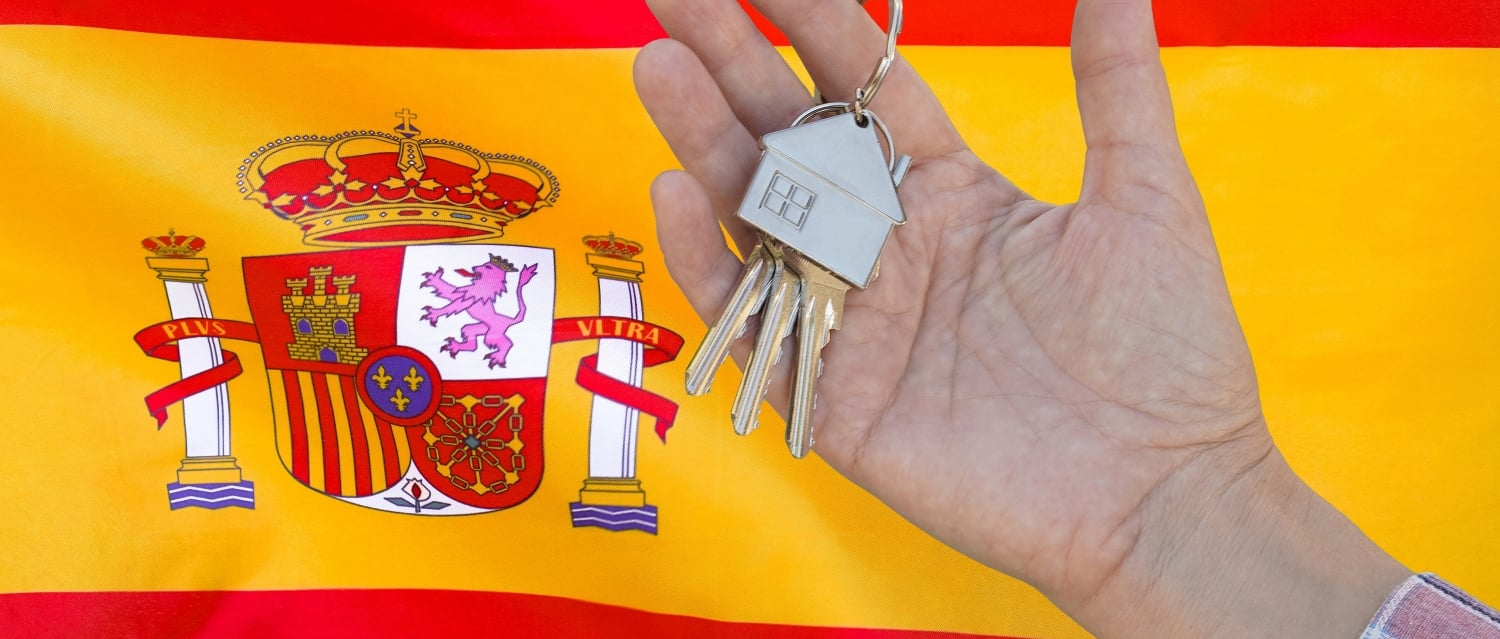Spain welcomes buyers from all over the world. However, there are some rules you need to be aware of before you take the plunge. Whether you’re from the UK, US, Europe or beyond, here’s what you need to know about who can buy property in Spain and what paperwork you’ll need to prepare.
If you’re wondering whether you can buy property in Spain as a foreign national, the short answer is yes. Spain places very few restrictions on who can purchase property. In fact, buyers from outside the EU, including the UK, US, Canada and beyond, are all eligible to own property in the country. The only exception applies to individuals who are subject to European Union sanctions – for instance, certain political figures.
That said, the process will vary slightly depending on where you’re from, especially when it comes to visas, taxes and legal checks.
Download your free Spain Buying Guide: Get the guide
Who can buy property in Spain?
Here’s a breakdown of who can legally purchase property in Spain, and what’s required:
| Buyer type | Can buy? | NIE required? | Visa required to live? |
|---|---|---|---|
| EU citizens | Yes | Yes | No |
| UK citizens | Yes | Yes | Yes – unless short stay |
| US citizens | Yes | Yes | Yes – unless short stay |
| Other non-EU nationals | Yes | Yes | Yes – unless short stay |
To buy property in Spain, you’ll need a Número de Identificación de Extranjero (NIE) – a tax identification number for foreigners. This is essential for all legal and financial transactions, including signing deeds and opening a bank account.
Tip: You can apply for an NIE in Spain, via the Spanish consulate in your home country or through a legal representative.
Buying property in Spain through a company
You can also buy property in Spain via a company. This route is often used by experienced investors, particularly those from North America. Structuring your purchase through a company can offer tax advantages, depending on your circumstances and long-term goals. One key benefit is the potential to reduce or avoid paying property transfer tax (ITP). It may also offer more favourable treatment when it comes to capital gains tax if you later sell the property.
Even after Brexit, UK buyers can still purchase Spanish property through a UK limited company, although the process may involve more steps than a personal purchase. Another option is to set up a Spanish subsidiary, which typically requires more local paperwork and expert guidance.
Whichever route you choose, it’s essential to speak to a qualified tax advisor or Spanish property lawyer before making any decisions. They can help you navigate company registration, tax liabilities and regional legal requirements.
Do I need to live in Spain to buy property?
Not at all. You don’t need to be a resident of Spain to buy property there. Many buyers choose to purchase a holiday home or investment property while remaining tax residents elsewhere. However, if you plan to stay for more than 90 days within a 180-day period, you’ll need to look into visa options.
If you’re buying with the aim of relocating permanently, you’ll want to consider one of Spain’s residency visas, such as:
-
Non-lucrative visa – for those who won’t be working in Spain
-
Digital nomad visa – for remote workers with international income
What are the rules for UK and US buyers?
UK buyers: Since Brexit, UK citizens are considered non-EU nationals. You can still buy property in Spain with no restrictions, but you’ll need a visa to live there long-term. The 90/180-day rule means you can spend up to 90 days in any 180-day period in Spain without a visa. If you’re planning a permanent move, a non-lucrative or digital nomad visa is your best bet.
US buyers: The process is much the same as for UK buyers. There are no restrictions on property ownership, but long-term stays will require a visa.
Are there any exceptions or restrictions?
There are very few restrictions on property ownership in Spain, but a couple of exceptions do exist:
-
Military zones: Foreigners may be restricted from buying land in certain military or coastal areas. This typically requires additional authorisation.
-
Rural or protected land: In some autonomous regions, you may need special permissions to build or renovate.
These exceptions are rare but worth checking if you’re looking at rural plots or less-developed regions. Your solicitor (abogado) or property advisor can help confirm the land’s legal status.
Do I need a lawyer or estate agent?
While it’s not a legal requirement to use a lawyer when buying in Spain, it’s strongly advised – especially if you’re unfamiliar with the legal process. Your lawyer will carry out due diligence, check ownership records and help you navigate regional regulations.
When it comes to estate agents, working with a reputable local agent gives you access to vetted properties and on-the-ground insights. Look for agents who are bilingual and specialise in working with international buyers.
Steps to take if you’re ready to buy
- Get your NIE number
- Open a Spanish bank account
- Speak to a currency specialist – exchange rate fluctuations can impact your buying power
- Choose a region and set a budget
- Find a trusted lawyer and estate agent
- Visit properties or attend a virtual viewing trip
To make the process as smooth as possible, download our free comprehensive guide packed with practical tips on financing, legal steps and relocation options.
Search thousands of verified Spain properties here: View properties
You might also like:





